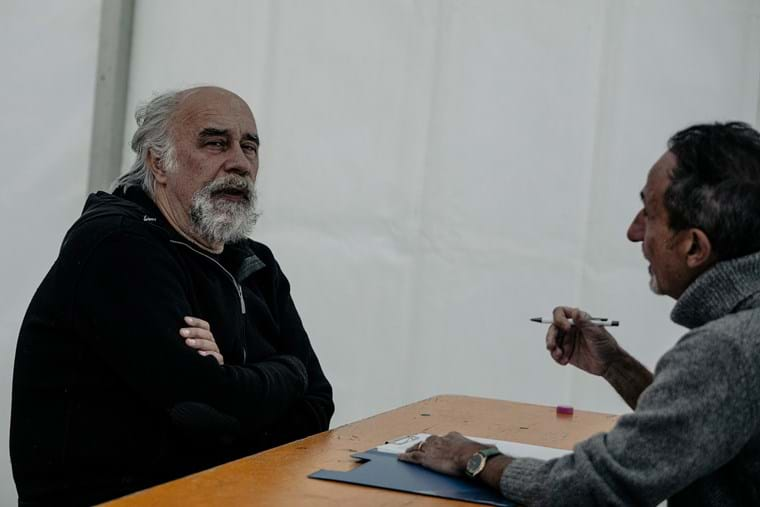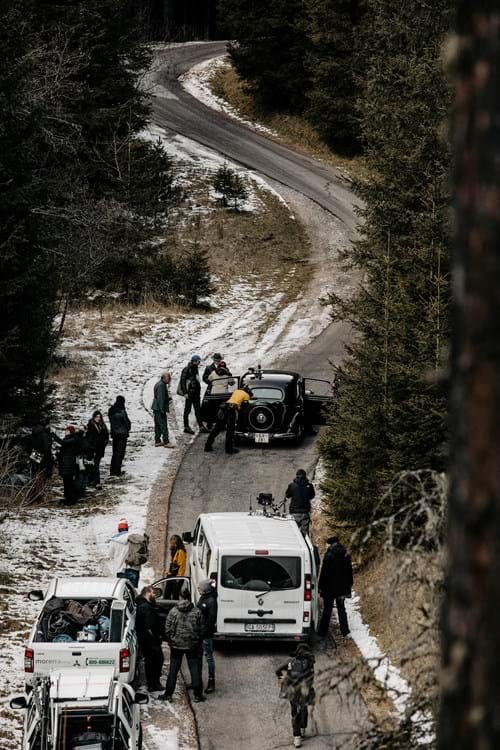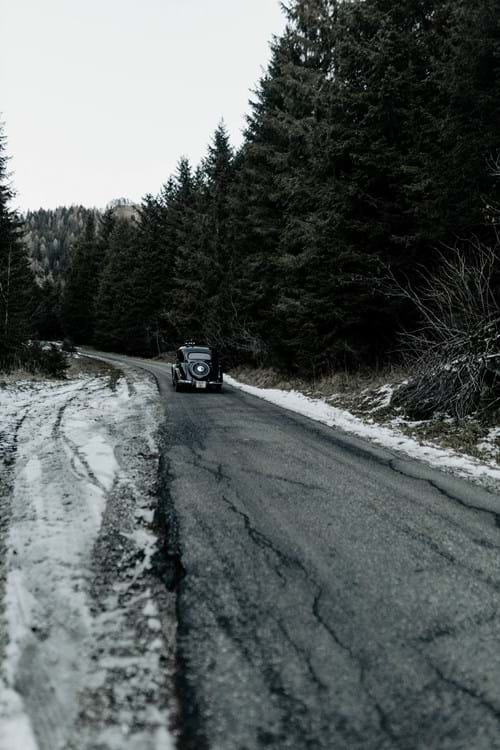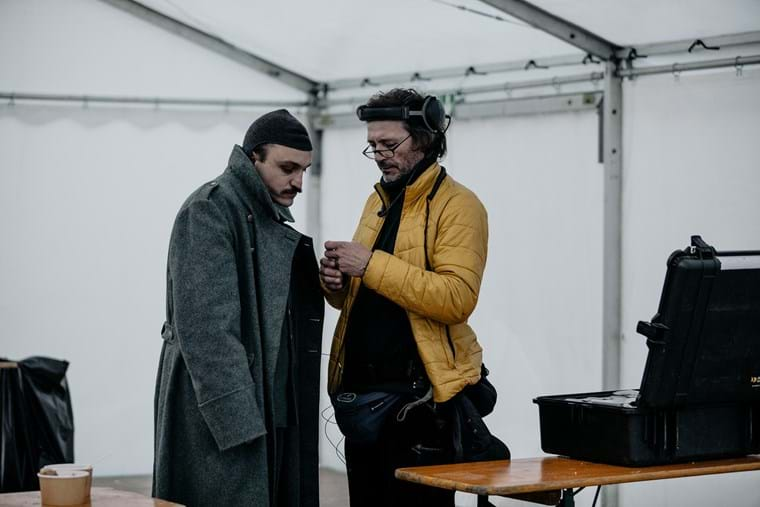The last time Giorgio Diritti was in the spotlight was in 2020, with the emotional rollercoaster that was Hidden Away (featuring a supremely talented Elio Germano portraying painter Antonio Ligabue). He’s now back three years later, with his most recent film hitting cinemas mid-2023. The director was born in Emilia and Fellini was his role model; while he may not be a household name, the few films he’s made are good. Better than good: outstanding. His work is never banal, as proved by his numerous prestigious awards.
Lubo is one of them, and was shot for three weeks in South Tyrol, in Valles, in the evocative yet cold Malga Fane. The film is actually set in Switzerland, where the protagonist was drafted into military service. Lubo is a co-production between Indiana Production, Aranciafilm and Rai Cinema, Hugofilm Features and Proxima Milano, in collaboration with RSI Radiotelevisione Svizzera SRG/SSR and with the support of the Direzione Generale Cinema e Audiovisivo MiC, Swiss Federal Office of Culture, Zürcher Filmstiftung, IDM Film Commission Alto Adige, Film Commission Torino Piemonte, and Trentino Film Commission.
Giorgio Diritti, what was the idea behind this film? “After Hidden Away, I dived headfirst into a project I’d been working on for years, which I’d started when I read the stunning book by Mario Cavatore, Il seminatore (The Sower). A touching fictional story, it narrates a real fact which occurred in Switzerland between the 1930s and 1970s.”
“I dived headfirst into a project I’d been working on for years, which I’d started when I read the stunning book by Mario Cavatore, Il seminatore (The Sower). A touching story.”

The Yenish and ”Kinder der Landstrasse”
Talk of war from Germany is on everyone lips in the 1930s, and Switzerland mobilizes all male citizens, including Sinti and Rom. One of these people is Lubo Moser, played by 37-year-old Franz Rogowski, a household name in the German-speaking world and France, he worked for the first time with an Italian director, Gabriele Mainetti, in 2021 on Freaks Out. Lubo’s cast also features Christophe Sermet, from Switzerland, and Valentina Bellè, known for starring in the Volevo fare la rockstar TV series. But back to Lubo.
Diritti says, “Lubo is Yenish. Unlike other itinerant groups, such as the Rom and Sinti, who have Indian origins, Yenish come from a central European, German matrix. Lubo has a wife and three children and is a travelling street performer. A free man.” However, his simple life intersects with the social “Kinder der Landstrasse” (street children) programme implemented in Switzerland between 1926 and 1972 aiming to re-educate Romani and Yenish children with the support of the Pro Juventute charity. The director continues, “The aim was to eliminate vagabonds, beggars, and travellers via means of social re-education. Basically, children and teens were taken from their families and placed in boarding schools and educational institutes or entrusted to farmers with families as free workforce. This programme was unknown to most of the Swiss until the ‘70s, and impacted countless families, especially Yenish ones. I was touched by this event for its cruelty and because it jarred with the positive image I’d always had of Switzerland: a democratic, liberal, and efficient confederation. In the 1920s, in the Confederation, just like across many parts of the world, eugenics had started taking root. The theory categorised races, people, and men and women, creating a hierarchy of differing values which strongly influenced many governments and, as history tells us, was at the heart of the slaughter carried out by Nazism.”

Winter, 1939: Lubo is forcefully drafted into military service in the Swiss Armed Forces to defend the borders. The young Yenish reluctantly takes up service and waits for better times to come. In the meantime, the “Kinder der Landstrasse” programme takes away his three children form his wife, and when Lubo finds out, he embarks on a lifelong search for them. He builds a new life for himself, with unexpected turns, which makes viewers reflect on the fine line between good and evil, especially when suffering a cruel injustice.
“These places are ideal for the film as the nature is similar enough to that in Switzerland to recreate a certain ambience – something which the similar architecture of the buildings contributed to, too.”
Why did you choose to shoot in South Tyrol? “This may seem banal, but first and foremost because I like the location. I’ve visited the region before, and even shot some scenes from the Antonio Ligabue film. These places are ideal for the film as the nature is similar enough to that in Switzerland to recreate a certain ambience – something which the similar architecture of the buildings contributed to, too.”
Did the hospitality meet your expectations? “Absolutely. We could shoot without a worry in the world, rely on numerous services and on a group of local pros which we’d contracted for the occasion.”
The local pros
Local pros such as costume designer and tailor Katia Schweiggl and assistant set designer Eros Rodighiero. Rodighiero was born in Bolzano, is 38 years old, and studied at the famous DAMS in Bologna. He started off as theatre mechanic for the Notre Dame de Paris musical at the Stabile di Bolzano theatre and for the opera season in Verona. He then shifted to cinema, working in different roles and under famous directors: Soavi, Tornatore, Vanzina, Faenza, etc. He smiles, recounting, “I was at the right place at the right time.” He’s also worked as an assistant set designer on two other important movies, Black Out for Rai, and My Name Is Vendetta with Alessandro Gassman for Netflix.

What about Lubo? “I’m Giancarlo Basili’s assistant. He oversaw the set of many blockbusters and is working on the new season of My Brilliant Friend. Together with an exceptional team of props people and painters, we created everything that was needed in a shot – from furnishing to brand-new buildings. We faithfully rebuilt some of the newsagent kiosks from the 1940s. The biggest challenge? Creating the carriages used by itinerant families: we had the platforms, but everything else was missing. This is where our technicians saved the day as we managed to accurately reproduce the interiors after they’d gone on minutious historical research expeditions.”

The tailor
Getting period clothing right is also important. And Katja Schweiggl knows a thing or two about it. With a diploma from Merano’s professional tailoring school, and with plenty of films under her belt, she was won best costume designer and tailor 2018 with La Pellicola d’oro for her work on Capri-Revolution by Mario Martone. She’s already worked with Diritti on Hidden Away, and now is back on Lubo.
Could you walk us through the dressmaking needs for this film? “Lubo required numerous soldier uniforms and civilian clothing from different social classes, including the Yenish people. Creating period clothing fascinates me. The plot spans decades, so we partially used already existing outfits in our collection, while some were created from scratch. I don’t want to give too much away, but we also had to create a bear costume.” Period costumes were sourced from various costume shops in Spain, Switzerland, the Czech Republic, Austria, and Italy. “At the end of the shot, each clothing item and accessory is resewn to what it looked like when we received it; it’s then washed and returned to its original shop.” What was the biggest challenge? “The cold during the scenes in Malga Fane. Period clothing for this film were skin-tight, and so you couldn’t add any extra padding.”
Diritti, Lubo to you means…? “Time travelling. We explored beautiful places and people between Italy and Switzerland, tracing the journey and suffering of a man determined to right a wrong and build a new life. The film is the result of an amazing team effort, achieved thanks to the determination and passion of the production studios and the lovely cast of actors and staff involved in the entire operations.”